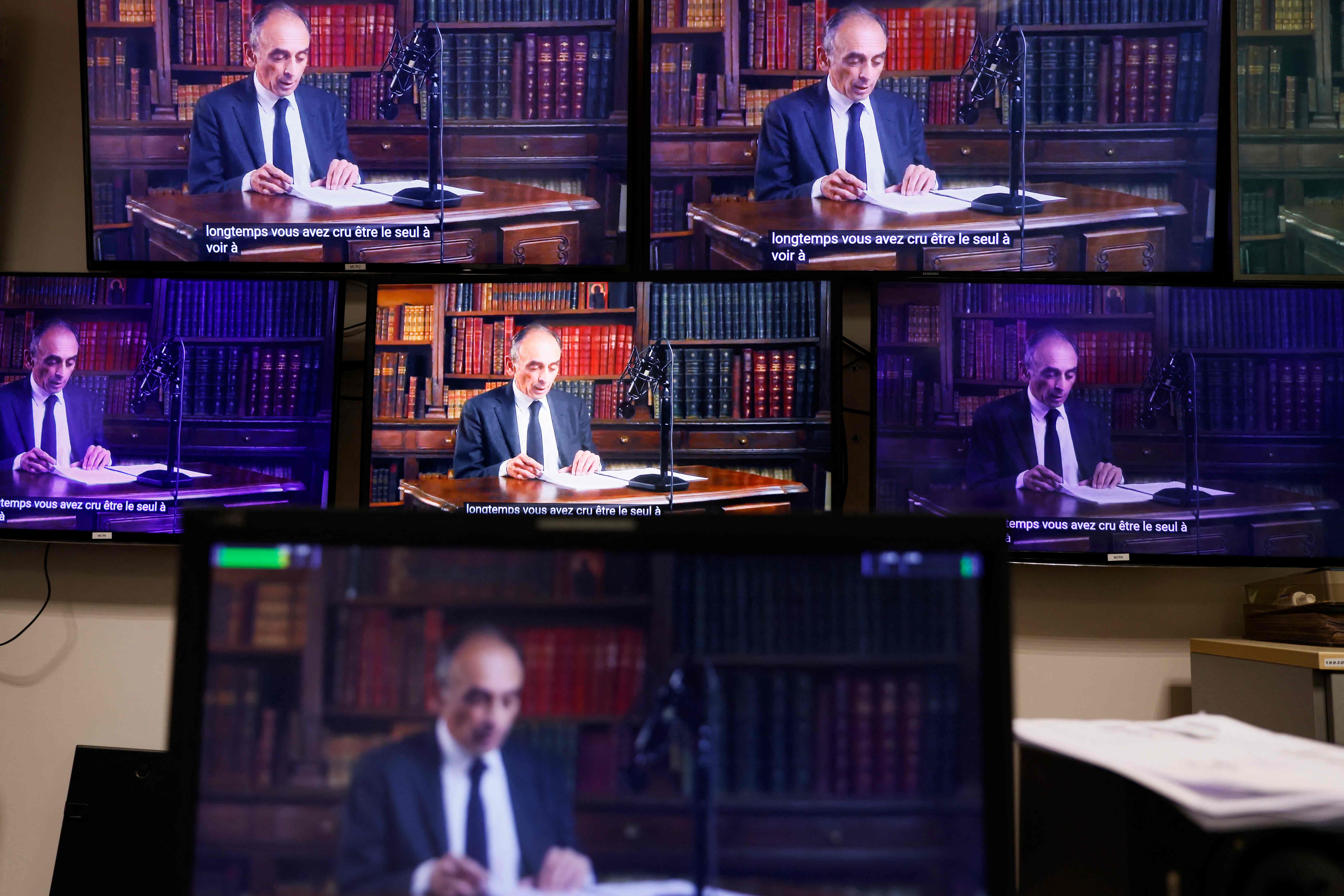What are Zemmour’s chances in the French election next year?
The far-right commentator has confirmed he will challenge Emmanuel Macron in 2022, but what is the likelihood of his being elected? Sean O’Grady takes a look at the odds


Although relatively obscure outside France, Eric Zemmour is a very well known and perhaps surprisingly popular figure, so much so that he has confirmed he will join the race to challenge Emmanuel Macron in the French presidential election next April. His candidature was an open secret, but that hasn’t stopped it appalling progressive opinion. Zemmour, of Algerian Jewish background, has been widely accused of being a racist, an Islamaphobe, a homophobe and even an antisemite, and has had more than his fair share of brushes with the law in relation to hate speech.
“Controversial” doesn’t really do this chap justice. Part journalist, part politician, part cultural critic, part what the French call a “public intellectual”, he has long subscribed to the “great replacement” theory. He believes that French national identity and western civilisation are in jeopardy, and that it is his job to save them. While he doesn’t stand a high chance of winning – though the possibility cannot be entirely dismissed – Zemmour’s very presence in the contest will make what is usually a rather divisive affair even more polarising.
His recent interview in The Spectator gave a flavour of what he will be bringing to the contest. In it, he declared that “immigration is war”, and that what he called “le wokeisme” is a trojan horse to deracinate France “by destroying our cultures, our history ... and allow a foreign culture, history and civilization to come and replace it”. There you go. Zemmour is really the ultimate culture-war candidate, and is running neck and neck with the now veteran leader of the far right, Marine Le Pen, with each hovering around the 15 per cent mark in polls for the first-round votes of French voters, as against about 25 per cent for the incumbent, President Macron.
The French election process is like a funnel with a very wide neck that quickly thins to a narrow tube. Thus, of a plethora of candidates of all stripes contesting a first round, only the top two go forward to the second round a fortnight later (the final ballot falls on Sunday 24 April 2022). That is when the voters have to make some tough, polarising choices, and hold their noses as they vote for the lesser of the two evils presenting themselves for a five-year spell in the Elysee Palace (with a chunk of the political leadership of the European Union as a bonus).
Thus the last time round, in 2017, communists, radical socialists and greens had to vote for the populist centrist Emmanuel Macron for fear of letting Le Pen and her Front National, now Rassemblement National, take control of the French Republic. But Le Pen was less successful in unifying the more fragmented forces of the centre-right, right and far right – not least because she so obviously rejected new-liberal globalist capitalism, advocated “Frexit” and bringing back the franc, and wasn’t that obviously devoted to democracy and the constitution of the Fifth Republic.
The political dynamics on the left and right, in other words, were not symmetrical. In 2022, Macron should be able to count on the vast majority of far-left, socialist and ecology (green) votes – which combined account for a further 26-27 per cent – to win the contest, albeit narrowly, in the second round against Le Pen or Zemmour. (Macron beat Le Pen by two to one in 2017, which he is unlikely to match next year.)
If, though, Zemmour attracts votes away from Le Pen, allowing a more mainstream right candidate such as Barnier to make it to the last round, then maybe some on the centre-left might defect to Barnier. It could get quite nuanced, and French voters are used to gaming the system.
So much the same seems set to happen next year, though Macron now has all the disadvantages of incumbency. In his favour, the various parties on the right are if anything even more fragmented and personality-riven than they were in 2017, with Michel Barnier, Xavier Bertrand and Valerie Pecresse all fishing in the same mainstream pool, and now Zemmour challenging Le Pen and other others from the nationalist, populist right.
The economy, cost of living, migration, culture wars and a long-term sense of malaise seem set to dominate the campaigns, none of which helps Macron. It is perfectly possible that Zemmour, a sharp contrast to the smooth, ambiguous, amorphous Macron, will end up an unlikely principal challenger, and – in theory at least – in line for the biggest upset since Brexit or the election of Donald Trump. More likely, France will give a Gallic shrug and allow Macron to serve a second term – making him the first president to do so since Jacques Chirac in 2002. The French, and the rest of the world, will hear a lot more from Zemmour in the process, however... and some of it will be quite disturbing.



Join our commenting forum
Join thought-provoking conversations, follow other Independent readers and see their replies
Comments